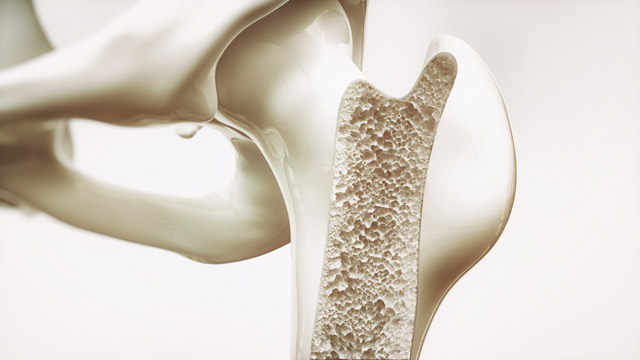
You need your bones to be strong from birth to your senior years. Osteoporosis affects over 10 million Americans, while another 44 million have low bone density (which places them at an increased risk). It roughly amounts to nearly 50% of adults over 50 years of age that should be highly concerned about breaking a bone or losing bone density.
One way to combat poor bone health is with food. Most people know that a diet rich in calcium and vitamin D is good for your bone health. This means eating foods like fish, dairy products, eggs, etc. will help your bones stay healthy.
But, did you know that there are foods that might be hindering your bone health? Here are the top foods that actually harm bone health and food you should avoid.
1. Food high in sodium
Sodium rich food is not good for your bone health. If you eat too much salt in your diet, your body excretes the excess through your urine, and takes some of your precious calcium along with it. The majority (roughly 75%) of our sodium intake comes from processed or prepacked food. You should aim for under 1500 mg of sodium per day to keep both your bones and your heart healthy. An easy way to approach this is to eat as much whole and fresh foods per day as you can.
2. Limit high oxalate foods
It is possible you might not have heard the term high oxalate before. It simply is a molecule found in many plants and it is actually not a required component of the human diet. By consuming too much high oxalate foods, it can bind to calcium in your gut and then excreted by your body. Thus preventing calcium absorption in your body. You might have guessed it, but foods such as Spinach, rhubarb, beet greens, some beans, and soy products (such as edamame, tempeh, and tofu) are high in oxalate. Avoid eating too many high oxalate foods to ensure that your body is absorbing enough calcium from the foods that you eat.

3. The trick for caffeine
Who doesn’t like a warm cup of joe in the morning? The problem can be with the caffeine content. Most of us enjoy the burst of energy with a cup, which equates to roughly 95mg of caffeine for an 8 ounce cup. However, caffeine can decrease your body’s ability to absorb calcium from the food your eat. Now here’s the trick. If you end up consuming your Recommended Daily Allowance (RDA) for calcium, then your body can counteract this process. For women ages 51-70 this means consuming 1200 mg of calcium and 1000mg for men in the same age range. Sometimes just adding a bit of milk to your morning cup will do the trick.
4. Limit high protein foods
Another way that your body loses calcium is with excessive protein intake. An increased amount of protein can bind and be excreted through your urine. There is still some debate over this topic, however, high-quality protein food sources should always be part of your diet. Foods such as dairy (milk, yogurt, and cheese), fish, poultry, eggs, and lean meat are great to incorporate. Unless your physician has recommended a high-protein diet or protein supplement, you are likely getting enough protein in your diet for optimal health.
5. Soaking beans before consumption
Another compound that can interfere with your body’s ability to absorb calcium is phylates. Beans are packed with good nutrients for your body, but they are also high in phylates. The trick here is to soak your beans for several hours and rinsing them before cooking them. This will reduce the amount of phylates.
6. Wheat Bran
Phylates are also found in wheat bran, thus interfering with calcium absorption. You can still eat wheat bran. However, if you want to include this whole grain in your diet, eat it a few hours apart from a high-calcium food (like milk or yogurt) to maximize your body’s calcium absorption.
7. Alcohol
Alcohol seems to be on any health influenced list as a substance to be used in moderation only. When it comes to bone health, it is also true. Heavy alcohol use can dramatically affect bone health and increase your risk of developing osteoporosis.
8. Soda
There’s not much good news to boast about soda. It appears as though the dark-colored sods are particularly bad when it comes to calcium absorption. Replacing milk with soda, which contains phosphoric acid, can lead to a reduction in bone mass and essentially increase your fracture risk. Light-colored sodas do not appear to have this effect. A better beverage choice is milk or a calcium-fortified milk alternative (such as coconut or almond milk).
Final Thoughts
Taking good care of your bone health is important, especially as you age. Eating a balanced and complete diet of whole foods is a great way to keep your bones healthy. There are obviously some foods that should be avoided or minimized to keep your bones in great shape.
Comments are closed.
